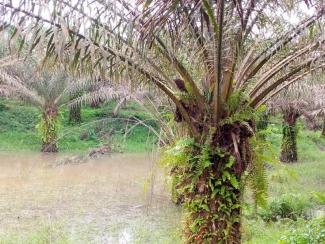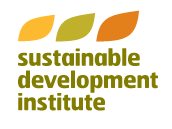
Amsterdam and Duazon: Sustainable Development Institute (SDI) Liberia and Milieudefensie expose the ongoing social and environmental harms in Maryland Oil Palm Plantation (MOPP) in Liberia. Over the past years, two research missions and local forest monitors documented severe cases of criminalization of community members, intimidation and violence, land grabbing, pollution, and destruction of valuable nature.
Community testimonies and related documents paint a bleak picture of life and work in the plantation area. Several communities have resisted the expansion of the plantation on their customary lands ever since MOPP entered the area in 2011. Community land was taken without consent. But their resistance is met with violence and intimidation. Community members testify that oppression and violence have increased over the past year. People are afraid, especially those that have the courage to speak up.
MOPP is situated in the county of Maryland close to the border with Ivory Coast. It is owned by SIFCA, a leading Ivorian Agribusiness group. Wilmar owns part of this group and its refinery, where MOPP products are refined. Wilmar is one of the largest Agri-businesses in the world. The African, French, and Dutch development banks invested in SIFCA and a range of Asian, UK, US, and French financiers are exposed to the harms on the MOPP plantations through their financing of Wilmar.
James Otto, program manager at SDI, says ‘Communities have the right to a formal and legally binding agreement with the company on the use of their lands. MOPP urgently needs to start negotiating and listening to communities, agree on terms and conditions of a lease, provide loss and damages, and give back land to communities where requested. The government of Liberia has to make sure that companies like MOPP are not flouting the rules and comply with the Land Rights Act of Liberia.’
The MOPP 2011 concession agreement includes 8,800 hectares for industrial palm oil plantations and 6,400 hectares of outgrower plantations. MOPP is obliged to rehabilitate the Decoris Oil Palm Company plantations that were abandoned in 1990 due to the onset of Liberia’s civil war. MOPP went beyond that to also plant on the abandoned Libsuco sugar cane plantation and community customary lands as well as deeded lands.
Danielle van Oijen from Milieudefensie warns that ‘Financiers related to SIFCA and Wilmar are exposed to the adverse impacts and need to suspend their finance and use their combined leverage to ensure the MOPP abides by the national law and international standards on the environment and human rights. Financiers, including the African and Dutch development banks, are aware of the structural problems in the industrial palm oil sector. They need to clean up their act now.’
Forests, farms, and wetlands were destroyed when MOPP cleared and planted the area. Palms are planted in wetlands, which are crucial for biodiversity and community livelihoods. A large waste pipe is running from the mill into the creeks in the plantation area and people are afraid of chemical runoff from plantations. People claim they have not benefited from the plantation development. There are few jobs. The area-based contribution of MOPP to the Community Development Fund has not been provided after 2018. The outgrower plantations, meant for community management, have not been established, while this is an obligation in the concession agreement.
Meanwhile, Milieudefensie and the Sustainable Development Institute further demand that Wilmar, the Dutch (FMO), and African development banks (AfDB) as well as other international financiers to take the community grievances seriously, acknowledge the violations of their corporate policies and bring their investments in line with the OECD and UN guidelines on business and human rights.
Financiers and buyers should use their combined leverage to push MOPP to comply with the community's requests. In the meantime, financing and buying from MOPP must be suspended.
